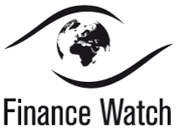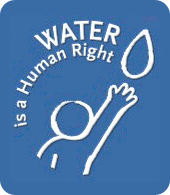EU more eager to criticize than appreciate?
Debate on Commission's progress report 2012
Taraf asked MEPs Jürgen Klute, Andrew Duff and Libor Roucek about their view on the Commission's new progress report. The interview (in Turkish) can be read here - see below the full set of questions & answers in English!
What do you think about Turkey's path to reforms? Do you agree with the criticisms made in the Progress report?
In my view, the European Commission has published a realistic and balanced report: Human rights defenders in the whole world critize detentions of journalists, lawyers and elected politicians, so the European Union needs to take responsibilty and speak about this sad development. On the other hand: The report also underlines positive developments, for example the success of economic reforms.
The ties between Turkey and the European Union are very well developped, and not only at diplomatic or commercial level! In central Europe, important parts of the population are of Turkish origin and millions of Europeans travel to Turkey each year coming back with positive experiences. Turkey and the current EU Member States are partners, and as partners we also must be honest and speak out what we think. So why not clearly say that the full respect of human rights must be guaranteed before accessing the Union?
The Turkish politicians have said that the commission was much more "eager to criticize than appreciate" (the head of the Parliament's Constitution Commission tore apart the report in front of the cameras). What would you like to say about these reactions?
I think such a reaction is regrettable, ever more since the responsibility of the Constitution Commission is very big. The European Union wishes to foster the respect of human rights in its neighbourhood and it opens the door to countries that live the values of democracy and freedom. We also experience a crisis of democracy in a number of new Member States, namely Hungary, and I can imagine that the Commission is drawing lessons for the future accession process.
I must confess though that some critizism stated in the report might not be appropriate – for example, the Commission is asking Turkey to develop a strategy for poverty reduction. Well, the Commission does not have such a strategy for Europe and poverty rises as a consequence of EU policies in Greece and Portugal, for example. During the crisis, the Commission has been even much more harsher and stricter against those Member States than against Turkey.
The French MEP Alain Lamassoure said "Both Turkey and Europe does not want the membership, so the problem is out of the table". Do you agree that the eagerness of a membership is lost?
I do respect my colleague M. Lamassoure a lot, but I don't quite agree to his view. The European Union wants to continue the enlargement process and at the same time deepen integration between its Member States. I think M. Lamassoure is aware that, given its size and importance of Turkey, the country would have to take over a considerable responsibility as a Member State, comparable to France and Germany today. Now, especially Germany seems to forget it has to share power in the Union instead of dominating only. But, I also disagree because Turkey has gained the candidate status in 2005, and regardless of the date of its full accession, this status implies a commitment to the Copenhaguen criteria. And it also implies a number of advantages, free trade and financial allocations of EUR 860 million in 2012.
There is still some time ahead before the Parliament's report, but do you think it would be more critical than the Comission's Progress report?
I don't expect the Parliament report to be more critical. The Parliament rapporteur will be again MEP Oomen-Ruijten who is known for her good relationship to the Turkish government. On October, 10th, she has already announced via Twitter that her report will support the government in its strategy against terrorism.


